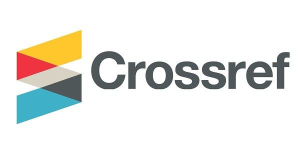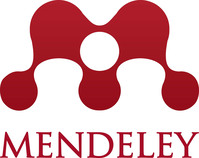The Challenges of Islamization of Knowledge in Nigerian Islamic Universities
DOI:
https://doi.org/10.31436/ijes.v4i1.40Abstract
A sort of revolution seems to have occurred in the education sector of the Muslim world consequent upon the First World Conference on Muslim Education held at Makkah in 1977, followed by others in different parts of the Muslim world. Part of the successes of these conferences was the establishment of international Islamic universities in some countries, as well as proliferation of intellectual institutions and organizations championing the course of Islamization of knowledge programme. In Nigeria, since 1999 at least four private Islamic universities have received licences of operation. Muslim owned universities tend to pursue the Islamization of knowledge programme rigorously. Nevertheless, certain stumbling blocks seem to have made this a mirage. This paper therefore intends to expose some of the stumbling blocks against the implementation of the Islamization of knowledge programme in Nigerian Islamic universities. To do justice to this, visitations were paid to the concerned institutions in Nigeria while libraries were consulted to have insight into the programme at international levels. Among the challenges encountered are: lack of a universally accepted model of Islamization; shortage of staff who are capable of doing Islamization; problems with funding the Islamization programme; many students not being interested in Islamization; and challenges related to the language of instruction. Based on our findings, some suggestions were made to facilitate effective implementation of the programme in the institutions that are believed to be fertile land for the development and execution of the Islamization of knowledge programme.Metrics
Metrics Loading ...
References
Abdul Rahim, R. A (1997). “The Reformation of the Islamic Educational System: An Analysis of the Reformist’s Point of View”, Muslim Education Quarterly, 14 (3). 64.
AbdulRahman, M.O. (2010). “The Future in our Footprints: A Case Study of Prof. I.A.B. Balogun”. (A paper presented at the Third Ismail Balogun Memorial Lecture organised by Bodija Estates & Environs Muslim Community held on 15th August) 11-12.
Adebayo, R.I. (2004). “Islamization of Knowledge: Its Inevitability and Problems of Practicability in Nigeria”; Muslim Education Quarterly, 21,(1 & 2).13.
Adebayo, R.I. (2008). Islamization of Knowledge: Global Developments, Individual Efforts and Institutional Contributions. Kano: IIITN.
Adebayo, R.I. (2010). “Prospects and Challenges of Private Universities in Nigeria: Focus on Islamic Missions’ Universities” in Okojie, J., Oloyede, I. & Obanya, P. (eds), 50 years of University Education in Nigeria: Evolution, Achievements and Future Directions. Ilorin: University of Ilorin & National Universities Commission.
Adebayo, R.I. (2014), “Some Quality Control Indicators for the Nigerian Private Islamic Universities.” A Journal of Islamic Sciences and Muslim Development, Department of Islamic Studies, Usmanu Dan Fodiyo University, Sokoto. Series 10, 95-104.
Ajadi, T.O. (2010). “Private Universities in Nigeria – The Challenges Ahead”; American Journal of Scientific Research, 7. 15-24.
Alanamu, A.S. et.al, (2009). “Analysis of the Emergence and Development of Islamic Universities in Nigeria”; in Sanni, A.O & Muhibbu-Din M.A. (eds), Transformation in Arabic and Islamic Studies in Nigeria: Studies in Memory of Musa ‘Ali Ajetunmobi. NATAIS.
Al-Faruqi, I.R. (1988) “Islamization of Knowledge: Problems, Principles and Prospective”; in Islam: Source and Purpose of Knowledge, Herndon: International Institute of Islamic Thought.
Naqi, S.A. (1987). “Implementation of the Recommendations of the World Conferences on Muslim Education in Bangladesh: Problems and Their Solutions”; Muslim Education Quarterly, 4(4). 44-51.
National Universities Commission, (2005). Presentation of Licences to New Private Universities. Abuja, NUC.
Obasi, I.N. (2006), “New Private Universities in Nigeria” International Higher Education, 45, Fall. www.bc.edu/bc_org/avp/soe/cihe/newsletter/number45/p14_obasi.htm , visited on 19/05/2010.
Oloyede, I.O (2000). “The Imperative for Reshaping and Re-Orientating the Modern Disciplines in the Islamic Perspective”. (A paper presented at a Conference on Islamization of Knowledge held at Usmanu DanFodiyo University, Sokoto, May 2000) 7-14.
Salisu, T.M. (2002) “Muslims and the Challenges of Higher Education in Nigeria”; Religious Forum Academia; 2(2). 106-107.
Sijuwola, A (2010) “Funding: A Vexed Issue in University Education”; in J. Okojie, I. Oloyede & P. Obanya (eds), 50 years of University Education in Nigeria: Evolution, Achievements and Future Directions; Ilorin: University of Ilorin & National Universities Commission.
Sultan, T. (1997). “The Role of Islamic Universities in the Islamization of Education”, Muslim Education Quarterly, 14(3), 57.
Sokoto, A.S. (1991). “Islamic Studies Teaching Through the Medium of English: A Critique” in Opeloye, M.O. (ed) Arabic and Islamic Studies in Nigerian Schools: Challenges of the 6-3-3-4 Educational System; NATAIS.
University of Ilorin, (2010), Unilorin Bulletin, June 21.
Wan Daud, W.M.N. (1989). The Concept of Knowledge in Islam and Its Implications for Education in a Developing Country; London: Mansell Publishing Ltd.
AbdulRahman, M.O. (2010). “The Future in our Footprints: A Case Study of Prof. I.A.B. Balogun”. (A paper presented at the Third Ismail Balogun Memorial Lecture organised by Bodija Estates & Environs Muslim Community held on 15th August) 11-12.
Adebayo, R.I. (2004). “Islamization of Knowledge: Its Inevitability and Problems of Practicability in Nigeria”; Muslim Education Quarterly, 21,(1 & 2).13.
Adebayo, R.I. (2008). Islamization of Knowledge: Global Developments, Individual Efforts and Institutional Contributions. Kano: IIITN.
Adebayo, R.I. (2010). “Prospects and Challenges of Private Universities in Nigeria: Focus on Islamic Missions’ Universities” in Okojie, J., Oloyede, I. & Obanya, P. (eds), 50 years of University Education in Nigeria: Evolution, Achievements and Future Directions. Ilorin: University of Ilorin & National Universities Commission.
Adebayo, R.I. (2014), “Some Quality Control Indicators for the Nigerian Private Islamic Universities.” A Journal of Islamic Sciences and Muslim Development, Department of Islamic Studies, Usmanu Dan Fodiyo University, Sokoto. Series 10, 95-104.
Ajadi, T.O. (2010). “Private Universities in Nigeria – The Challenges Ahead”; American Journal of Scientific Research, 7. 15-24.
Alanamu, A.S. et.al, (2009). “Analysis of the Emergence and Development of Islamic Universities in Nigeria”; in Sanni, A.O & Muhibbu-Din M.A. (eds), Transformation in Arabic and Islamic Studies in Nigeria: Studies in Memory of Musa ‘Ali Ajetunmobi. NATAIS.
Al-Faruqi, I.R. (1988) “Islamization of Knowledge: Problems, Principles and Prospective”; in Islam: Source and Purpose of Knowledge, Herndon: International Institute of Islamic Thought.
Naqi, S.A. (1987). “Implementation of the Recommendations of the World Conferences on Muslim Education in Bangladesh: Problems and Their Solutions”; Muslim Education Quarterly, 4(4). 44-51.
National Universities Commission, (2005). Presentation of Licences to New Private Universities. Abuja, NUC.
Obasi, I.N. (2006), “New Private Universities in Nigeria” International Higher Education, 45, Fall. www.bc.edu/bc_org/avp/soe/cihe/newsletter/number45/p14_obasi.htm , visited on 19/05/2010.
Oloyede, I.O (2000). “The Imperative for Reshaping and Re-Orientating the Modern Disciplines in the Islamic Perspective”. (A paper presented at a Conference on Islamization of Knowledge held at Usmanu DanFodiyo University, Sokoto, May 2000) 7-14.
Salisu, T.M. (2002) “Muslims and the Challenges of Higher Education in Nigeria”; Religious Forum Academia; 2(2). 106-107.
Sijuwola, A (2010) “Funding: A Vexed Issue in University Education”; in J. Okojie, I. Oloyede & P. Obanya (eds), 50 years of University Education in Nigeria: Evolution, Achievements and Future Directions; Ilorin: University of Ilorin & National Universities Commission.
Sultan, T. (1997). “The Role of Islamic Universities in the Islamization of Education”, Muslim Education Quarterly, 14(3), 57.
Sokoto, A.S. (1991). “Islamic Studies Teaching Through the Medium of English: A Critique” in Opeloye, M.O. (ed) Arabic and Islamic Studies in Nigerian Schools: Challenges of the 6-3-3-4 Educational System; NATAIS.
University of Ilorin, (2010), Unilorin Bulletin, June 21.
Wan Daud, W.M.N. (1989). The Concept of Knowledge in Islam and Its Implications for Education in a Developing Country; London: Mansell Publishing Ltd.
Downloads
Published
2016-06-30
How to Cite
Adebayo, R. I. (2016). The Challenges of Islamization of Knowledge in Nigerian Islamic Universities. IIUM Journal of Educational Studies, 4(1), 78–99. https://doi.org/10.31436/ijes.v4i1.40
Issue
Section
Articles
License
The Journal will own copyright to all published works and have the right of first publication, both in print and online, unless other arrangements are made with the Editors in advance. It is the author`s responsibility to ensure that where copyright materials are included within an article the permission of the copyright holder has been obtained beforehand.


















